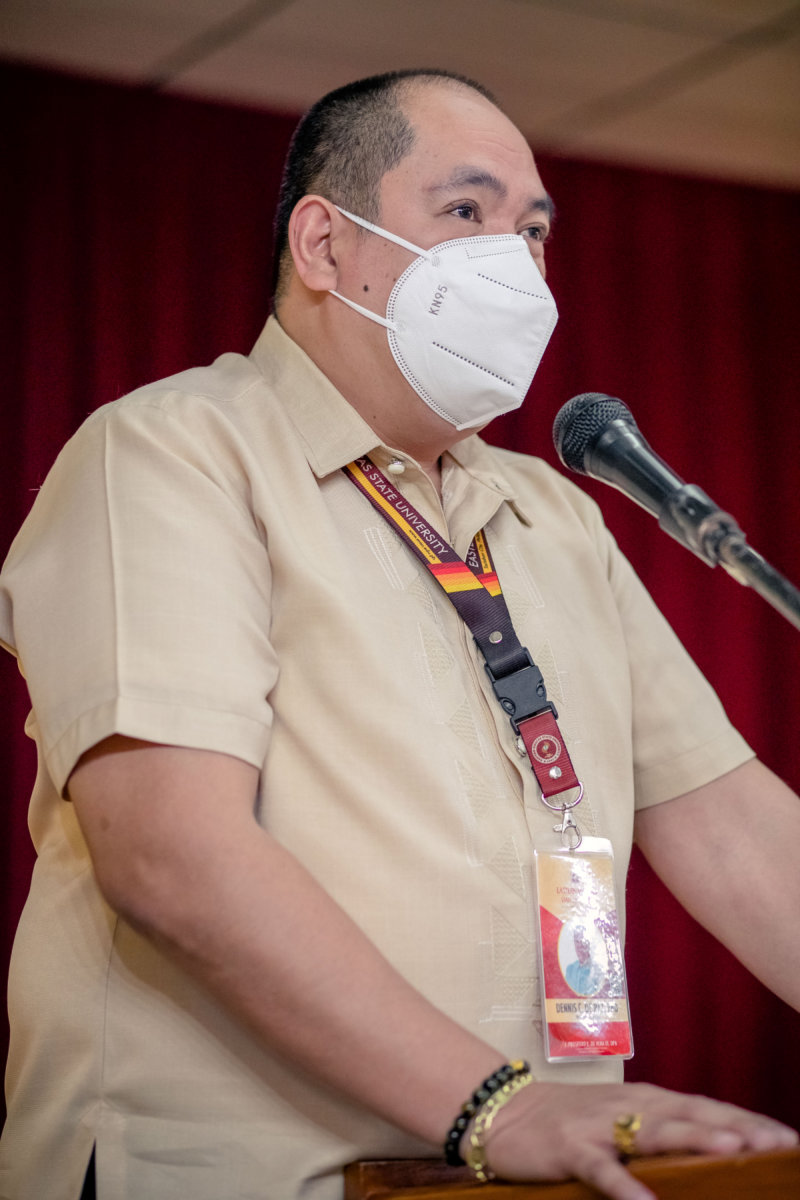The Institutional Planning and Development Office organized the Performance Planning and Commitment (PPC) on October 21-22, 2021, via hybrid mode (face to face and virtual). The participants were the University key officials and administrators, particularly those of the academic units, who are majority members of the Performance Management Team (PMT).
The activity was formally opened through the welcome remarks and introduction of the participants by the Vice-President for Academic Affairs and the PMT Chairperson, Dr. Lydia M. Morante. Dr. Felixberto E. Avestruz, the Vice-President for Administration and Finance as well as the PMT co-chairperson, provided the statement of purpose.
Our University President and SPMS Champion, Dr. Dennis de Paz, motivated the participants to be proactive in the establishment of strategic targets towards productivity and efficiency as the main goals. In his speech, he also emphasized and encouraged everyone to continue practice the culture of teamwork and collaboration as EVSU commits to improve its services to the stakeholders.
This two-day Performance Planning and Commitment is the Stage 1 of the Strategic Performance Management System cycle. During the first day of the activity, Prof. Christopher C. Bacungan, the Director for Institutional Planning and Development Office and the PMT secretariat, facilitated the identification and revision of targets as per the institutional development goals and anchored on various accrediting frameworks. Prior to the setting of targets, he reiterated the significance of the activity which is based on the EVSU Strategic Performance Management System (SPMS), the governing policy of the University on performance evaluation and management. A discussion of its essential content, with emphasis on SPMS Monitoring and Management as well as the SPMS Cycle, was done by the facilitator.
Included as well in the Day 1 is the orientation of the major final outputs (MFOs) of the University. These outputs are considered the focus in the performance evaluation and monitoring of every employee in the institution. The University MFOs are anchored on some of the key result areas (KRAs) in SUC Levelling namely Quality and Relevance of Instruction, Research Capability and Creative Works, and Services to the Community. Management of resources is one of the KRAs in SUC Levelling, however, the PMT decided to include its relevant items in the support to operations.
Highlighted in that afternoon session are the rating system and identifying weight allocations per function. Prof. Bacungan discussed the differences of rating dimensions – quality, efficiency, and timeliness, particularly in evaluating the success indicators set by a unit. He emphasized that at least two of the dimensions must be rated and ensure their validity and relevance per indicator. He also presented the rating scale stipulated in the EVSU SPMS which is an adoption from a relevant CSC memorandum order. The last part of the session was allotted on the establishment of weight allocations per function. The PMT considered models as well as from the University manuals in their discussion before coming up with their final decision.


































